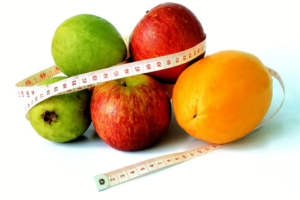The Power of Hydration: How Water Affects Your Health
Water is one of the most vital substances for human life, comprising about 60% of our body weight and playing an indispensable role in a myriad of biological processes. Despite its importance, many people remain unaware of how crucial proper hydration is to maintaining good health. This article will explore the science behind hydration, the consequences of dehydration, the benefits of adequate water intake, and practical tips to ensure you stay properly hydrated in today’s busy world.
The Science of Hydration
Water as a Fundamental Component
Water serves several critical functions in the body, including:
-
Regulating Body Temperature: Through the process of sweating and respiration, water helps to control body temperature. When the body heats up, sweat glands release water onto the skin’s surface, which cools the body as it evaporates.
-
Facilitating Digestive Processes: Water is essential for the digestion and absorption of food. It aids in swallowing, helps dissolve vitamins and minerals, and serves as a primary component of gastrointestinal fluids.
-
Transporting Nutrients and Oxygen: Blood, which is approximately 90% water, carries oxygen and essential nutrients to cells throughout the body.
-
Excretion of Waste: Water is crucial for the excretion of waste products through urine and feces. It dissolves toxins, making it easier for the kidneys to filter out harmful substances.
-
Maintaining Cellular Function: Cells rely on water to maintain their structure and function. The balance of fluids is vital for cell metabolism, communication, and overall health.
Water Needs Vary by Individual
While the commonly cited guideline is to drink eight 8-ounce glasses of water a day (known as the “8×8 rule”), water needs vary significantly by individual. Factors such as age, gender, activity level, climate, and overall health can influence hydration needs. The National Academies of Sciences, Engineering, and Medicine suggests an adequate daily water intake of about:
- About 3.7 liters (or 125 ounces) for men
- About 2.7 liters (or 91 ounces) for women
These recommendations include all fluids consumed, not just plain water.
The Consequences of Dehydration
Dehydration occurs when the body loses more fluids than it takes in. Even mild dehydration can disrupt normal bodily functions and lead to various health issues:
Physical Health Effects
-
Decreased Physical Performance: Physical performance can be adversely affected by dehydration. In activities involving vigorous exercise, even a loss of 2% of body weight due to water loss can lead to reduced endurance, increased fatigue, and overheating.
-
Headaches and Migraines: Dehydration is a common trigger for headaches and migraines. Studies have shown that even mild dehydration can lead to headache development.
-
Kidney Damage: Chronic dehydration can damage the kidneys and lead to kidney stones or even chronic kidney disease. The kidneys require a sufficient amount of water to effectively filter waste products from the blood.
-
Cognitive Impairment: Dehydration can also affect cognitive function, leading to difficulties in concentration, short-term memory, and alertness.
-
Mood Disturbances: Studies have found links between dehydration and mood changes, including increased perception of stress and anxiety.
Long-Term Effects
Long-term dehydration can lead to more severe health issues, including:
- High Blood Pressure: Dehydration can cause blood vessels to constrict, leading to increased blood pressure.
- Digestive Issues: Insufficient water intake can lead to constipation and other digestive problems.
- Increased Risk of Chronic Diseases: Some studies have suggested a link between chronic dehydration and the development of diseases such as diabetes and cardiovascular diseases.
The Benefits of Hydration
Proper hydration offers a multitude of physical and mental health benefits:
Enhances Physical Performance
Adequate hydration is essential for optimal physical performance. Studies have shown that athletes who maintain proper hydration levels during exercise have better endurance, strength, and recovery times.
Supports Cognitive Function
Staying hydrated can improve concentration, alertness, and short-term memory. Some research even indicates that adequate water intake can help alleviate anxiety and improve mood.
Promotes Healthy Skin
Water plays a crucial role in maintaining skin elasticity and hydration. Sufficient fluid intake can help prevent dryness and may even reduce the appearance of fine lines and wrinkles.
Aids Digestion and Weight Management
Drinking water before meals can promote a feeling of fullness, thereby assisting those looking to lose weight. Additionally, water aids in the digestive process, reducing the risk of constipation and promoting regular bowel movements.
Detoxification
Water is essential for the kidneys to remove waste products from the bloodstream effectively. Adequate hydration thus supports the body’s natural detoxification processes.
Practical Tips for Staying Hydrated
Listen to Your Body
One of the simplest ways to ensure you’re drinking enough water is to listen to your body’s thirst signals. Thirst is a reliable indicator that your body requires hydration.
Keep Water Accessible
Make a habit of carrying a reusable water bottle with you throughout the day. Having water within reach makes it easier to take sips regularly.
Set Reminders
Use your phone to set reminders to drink water at regular intervals throughout the day. You can also use apps that track your water intake.
Infuse Your Water
If you find plain water boring, consider infusing it with fruits, vegetables, or herbs such as lemon, cucumber, or mint. This adds flavor without added sugars or calories.
Monitor Urine Color
A quick way to gauge your hydration level is to check the color of your urine. Light yellow is generally a good sign of proper hydration, while dark yellow indicates dehydration.
Eat Water-Rich Foods
Incorporate water-rich foods into your diet, such as fruits (e.g., watermelon, oranges) and vegetables (e.g., cucumbers, lettuce). These contribute to your overall fluid intake.
Adjust for Activity and Climate
If you’re exercising or spending time in a hot climate, you may need to increase your water intake. Pay attention to your body’s needs during these activities.
Conclusion
The importance of hydration cannot be overstated. As a vital component of every biological process, water plays a dynamic role in ensuring our physical and mental well-being. From enhancing athletic performance to improving cognitive function, proper hydration offers countless benefits that contribute to our overall health.
By understanding the significance of hydration and implementing practical strategies to improve your water intake, you can empower yourself to achieve a healthier, more vibrant life. Remember, the power of hydration lies not just in the quantity of water you drink but also in making it a seamless part of your daily routine.
References
- National Academies of Sciences, Engineering, and Medicine. “Dietary Reference Intakes for Water, Potassium, Sodium, Chloride, and Sulfate.”
- Stookey, J.D. et al. “Water Consumption and Weight Status Among US Adults.” Obesity, vol. 19, no. 2, 2011, pp. 407-414.
- McCarty, M.F. “Can increasing water intake help with weight control?” Nutrition Reviews, vol. 66, no. 6, 2008, pp. 328-339.
- Hurst, P. et al. “Water balance and fluid regulation.” British Journal of Sports Medicine, vol. 42, no. 3, 2008, pp. 163-168.
- Popkin, B.M., D’Anci, K.E., & Rosenberg, I.H. “Water, hydration, and health.” Nutrition Reviews, vol. 68, no. 8, 2010, pp. 439-458.
In conclusion, maintaining adequate hydration is essential for overall health and well-being. By prioritizing water intake and being mindful of your body’s signals, you can harness the powers of hydration to lead a healthier life.


























Add Comment